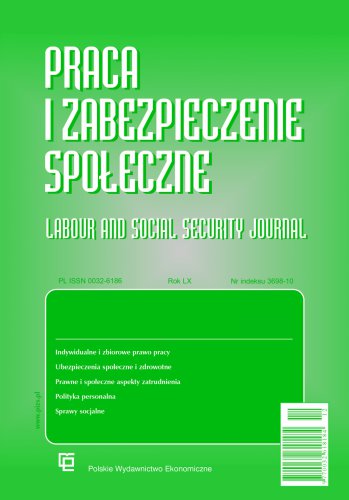The way of performing work by an academic teacher due to the COVID-19 pandemic has changed a lot, and in the future these changes (especially in the field of didactics) may already be permanently inscribed in its standards. The need to perform work (teaching, research and organization) remotely, often in a home environment, has highlighted a number of problems. Undoubtedly, it was (and still remains) a challenge for an academic teacher to find their way in the realities of remote working. For the academic teacher who is a parent (caregiver), it remains a challenge to find the right rhythm between the professional and private spheres. The COVID-19 pandemic has exposed not only long-standing problems related to the phenomenon of invisible (unpaid) work, or gender inequality in employment, but has also created completely new ones related to the expectations of constant readiness and availability of the employee to work or the imposition of additional obligations, which the employer has burdened teaching staff in particular. The existing doubts related to the evaluation of scientific work have also gained in strength. The lack of legal solutions regulating the issue of the impact of an employee's excused absence from work due to parental leave (and in the era of the COVID-19 pandemic, absence due to the need toprovide care) on the evaluation of the quality of scientific activity is a significant burden for University employees. The sociological research cited in the article reveals that the burden of caregiving and performing additional duties rested primarily on the shoulders of women. In many cases, this has translated directly into the number of articles written, research conducted, or grant proposals submitted. The COVID-19 pandemic has not only forced some changes in the current organization of the professional work of academic teachers, but above all has revealed problems whose scope is no longer only individual, but primarily social. The aim of the article is to trace selected challenges faced today by women and men employed in higher education and to analyze the legal solutions in force as well as to identify gaps in the law that make it difficult to mitigate them. An interdisciplinary examination of the presented issues will enable us to search for legal and non-legal solutions, which will contribute to the removal of barriers in the academic work environment, in which many stereotypes still prevail.
Keywords: higher education; academic teacher; invisible work; remote work; COVID-19; work-life balance; right to be offline; academic performance evaluation

